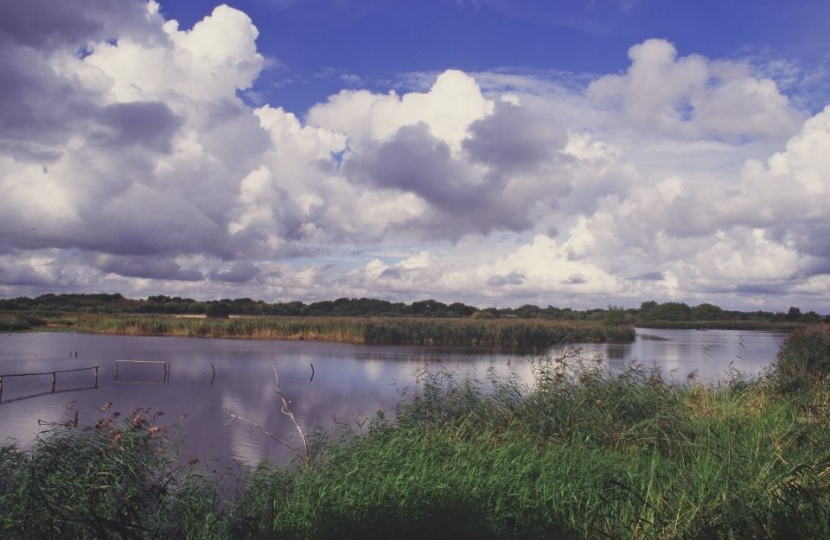
I know that improving water quality is an issue of great importance to many of my constituents.
I welcome that substantial improvements have been made to bathing water quality. I am aware that in the early 1990s, just 28 per cent of bathing water met the highest “excellent” standards in force at that time. In 2021, using a stricter “excellent” standard introduced in 2015, 70.7 per cent of bathing waters were classified as “excellent” and another 24 per cent as “good”. Overall, 99 per cent of England’s bathing waters met the minimum bathing water standard.
Improving water quality is a priority for the Government and there is still more to be done. I am glad that the Environment Agency is working with partners including local authorities, water companies, farmers and businesses to both improve bathing water quality and prevent deterioration.
Storm Overflows
I have been clear that the amount of sewage discharge by water companies into our rivers is unacceptable; and I am glad that this is the first Government to set out expectations that water companies must take steps to significantly reduce storm overflows. This instruction will now be put on an enhanced legal footing.
The Environment Act 2021 includes a new duty directly on water companies to produce comprehensive statutory Drainage and Sewerage Management Plans, setting out how they will manage and develop their drainage and sewerage system over a minimum 25-year planning horizon, including how storm overflows will be addressed through these plans. Water company investment in environmental improvements have been scaled up to £7.1 billion over the period 2020-25. Further, ministers are currently seeking views on a number of targets through the Act, which include targets on water, and will improve the health of our rivers by reducing nutrient pollution and contamination from abandoned metal mines in water courses and improve water use efficiency.
The Act will also create a new duty on Government to produce a statutory plan to reduce discharges from storm overflows, and produce a report setting out the actions needed to eliminate discharges from storm overflows in England. Both publications are required before 1 September 2022. The package of measures I voted for will also create three new duties on water companies to publish data on storm overflow operation, publish near real time information on the operation of storm overflows and to monitor the water quality upstream and downstream of storm overflows and sewage disposal works.
I welcome that the Government secured an amendment that says that water companies must secure a progressive reduction in the adverse impact of discharges from their storm overflows, placing a direct legal duty on water companies. Finally, I welcome the consultation on plans to reduce sewage discharges and remove harm from storm overflows. This consultation is open until 12 May 2022.
Enforcement
- Since 2015 the Environment Agency has brought 48 prosecutions against water companies, securing fines of over £137 million. Some of the biggest fines were imposed last year – including a record £90 million fine for Southern Water in July for thousands of illegal discharges – making clear that polluters will be made to pay for damage to the environment.
- Last year the Environment Agency and Ofwat also launched major investigation based on evidence that some water companies in England may not be complying with their permits, resulting in excess sewage spills into the environment, even in dry periods.
- This investigation is already highlighting that many permits have been contravened and further detailed analysis will result in legal action where appropriate.
Agriculture
- Agriculture contributes a significant share towards water pollution and much focus is being directed towards reducing this:
- A key way to tackle pollution from agriculture is Catchment Sensitive Farming – a partnership between Defra, Natural England and the Environment Agency which provides free 1-2-1 advice to farmers to help them reduce pollution through management of farmyard manure and soils, among other things.
- We have almost doubled the funding available for the Catchment Sensitive Farming programme over the next three years. The new annual budget will be £30 million, up from £16.6 million in 2020-21. This means it will cover 100% of England’s farmland, up from 40% of its current coverage, with every farmer able to access advice and support by March 2023.
- We have also made extra budget available this year to the Environment Agency for 50 extra inspectors to be recruited in this financial year to visit farms posing a risk of water pollution and ensure action is taken.
- Our farming reforms – the most significant changes for the sector in 50 years – will also help tackle the pressures from agriculture. Farmers will be paid for actions that improve the environment and help achieve clean and plentiful water, including reducing pollution from run-off into rivers